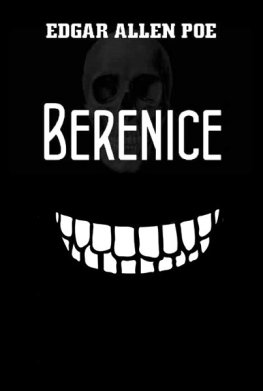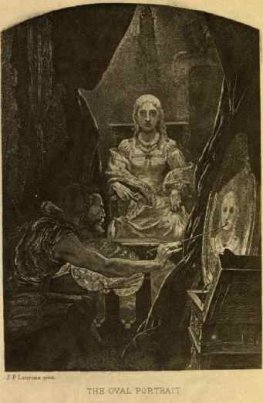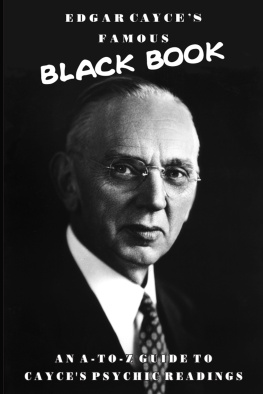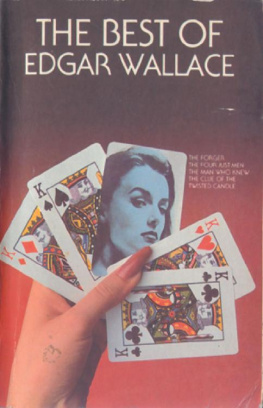Edgar Poe - The Man of the Crowd
Here you can read online Edgar Poe - The Man of the Crowd full text of the book (entire story) in english for free. Download pdf and epub, get meaning, cover and reviews about this ebook. genre: Prose. Description of the work, (preface) as well as reviews are available. Best literature library LitArk.com created for fans of good reading and offers a wide selection of genres:
Romance novel
Science fiction
Adventure
Detective
Science
History
Home and family
Prose
Art
Politics
Computer
Non-fiction
Religion
Business
Children
Humor
Choose a favorite category and find really read worthwhile books. Enjoy immersion in the world of imagination, feel the emotions of the characters or learn something new for yourself, make an fascinating discovery.

The Man of the Crowd: summary, description and annotation
We offer to read an annotation, description, summary or preface (depends on what the author of the book "The Man of the Crowd" wrote himself). If you haven't found the necessary information about the book — write in the comments, we will try to find it.
The Man of the Crowd — read online for free the complete book (whole text) full work
Below is the text of the book, divided by pages. System saving the place of the last page read, allows you to conveniently read the book "The Man of the Crowd" online for free, without having to search again every time where you left off. Put a bookmark, and you can go to the page where you finished reading at any time.
Font size:
Interval:
Bookmark:
The Man of the Crowd
by Edgar Allan Poe
Ce grand malheur, de ne pouvoir tre seul.
La Bruyre.It was well said of a certain German book that "es lasst sich nicht lesen "it does not permit itself to be read. There are some secrets which do not permit themselves to be told. Men die nightly in their beds, wringing the hands of ghostly confessors, and looking them piteously in the eyesdie with despair of heart and convulsion of throat, on account of the hideousness of mysteries which will not suffer themselves to be revealed. Now and then, alas, the conscience of man takes up a burthen so heavy in horror that it can be thrown down only into the grave. And thus the essence of all crime is undivulged.
Not long ago, about the closing in of an evening in autumn, I sat at the large bow window of the D Coffee-House in London . For some months I had been ill in health, but was now convalescent, and, with returning strength, found myself in one of those happy moods which are so precisely the converse of ennui moods of the keenest appetency, when the film from the mental vision departs and the intellect, electrified, surpasses as greatly its every-day condition, as does the vivid yet candid reason of Leibnitz, the mad and flimsy rhetoric of Gorgias. Merely to breathe was enjoyment; and I derived positive pleasure even from many of the legitimate sources of pain. I felt a calm but inquisitive interest in every thing. With a cigar in my mouth and a newspaper in my lap, I had been amusing myself for the greater part of the afternoon, now in poring over advertisements, now in observing the promiscuous company in the room, and now in peering through the smoky panes into the street.
This latter is one of the principal thoroughfares of the city, and had been very much crowded during the whole day. But, as the darkness came on, the throng momently increased; and, by the time the lamps were well lighted, two dense and continuous tides of population were rushing past the door. At this particular period of the evening I had never before been in a similar situation, and the tumultuous sea of human heads filled me, therefore, with a delicious novelty of emotion. I gave up, at length, all care of things within the hotel, and became absorbed in contemplation of the scene without.
At first my observations took an abstract and generalizing turn. I looked at the passengers in masses, and thought of them in their aggregate relations. Soon, however, I descended to details, and regarded with minute interest the innumerable varieties of figure, dress, air, gait, visage, and expression of countenance.
By far the greater number of those who went by had a satisfied, business-like demeanor, and seemed to be thinking only of making their way through the press. Their brows were knit, and their eyes rolled quickly; when pushed against by fellow-wayfarers they evinced no symptom of impatience, but adjusted their clothes and hurried on. Others, still a numerous class, were restless in their movements, had flushed faces, and talked and gesticulated to themselves, as if feeling in solitude on account of the very denseness of the company around. When impeded in their progress, these people suddenly ceased muttering, but redoubled their gesticulations, and awaited, with an absent and overdone smile upon the lips, the course of the persons impeding them. If jostled, they bowed profusely to the jostlers, and appeared overwhelmed with confusion.There was nothing very distinctive about these two large classes beyond what I have noted. Their habiliments belonged to that order which is pointedly termed the decent. They were undoubtedly noblemen, merchants, attorneys, tradesmen, stock-jobbersthe Eupatrids and the common-places of societymen of leisure and men actively engaged in affairs of their ownconducting business upon their own responsibility. They did not greatly excite my attention.
The tribe of clerks was an obvious one; and here I discerned two remarkable divisions. There were the junior clerks of flash housesyoung gentlemen with tight coats, bright boots, well-oiled hair, and supercilious lips. Setting aside a certain dapperness of carriage, which may be termed deskism for want of a better word, the manner of these persons seemed to be an exact facsimile of what had been the perfection of bon ton about twelve or eighteen months before. They wore the cast-off graces of the gentry;and this, I believe, involves the best definition of the class.
The division of the upper clerks of staunch firms, or of the "steady old fellows," it was not possible to mistake. These were known by their coats and pantaloons of black or brown, made to sit comfortably, with white cravats and waistcoats, broad solid-looking shoes, and thick hose or gaiters.They had all slightly bald heads, from which the right ears, long used to pen-holding, had an odd habit of standing off on end. I observed that they always removed or settled their hats with both hands, and wore watches, with short gold chains of a substantial and ancient pattern. Theirs was the affectation of respectability;if indeed there be an affectation so honorable.
There were many individuals of dashing appearance, whom I easily understood as belonging to the race of swell pick-pockets, with which all great cities are infested. I watched these gentry with much inquisitiveness, and found it difficult to imagine how they should ever be mistaken for gentlemen by gentlemen themselves. Their voluminousness of wristband, with an air of excessive frankness, should betray them at once.
The gamblers, of whom I descried not a few, were still more easily recognizable. They wore every variety of dress, from that of the desperate thimble-rig bully, with velvet waistcoat, fancy neckerchief, gilt chains, and filagreed buttons, to that of the scrupulously inornate clergyman, than which nothing could be less liable to suspicion. Still all were distinguished by a certain sodden swarthiness of complexion, a filmy dimness of eye, and pallor and compression of lip. There were two other traits, moreover, by which I could always detect them:a guarded lowness of tone in conversation, and a more than ordinary extension of the thumb in a direction at right angles with the fingers.Very often, in company with these sharpers, I observed an order of men somewhat different in habits, but still birds of a kindred feather. They may be defined as the gentlemen who live by their wits. They seem to prey upon the public in two battalionsthat of the dandies and that of the military men. Of the first grade the leading features are long locks and smiles; of the second, frogged coats and frowns.
Descending in the scale of what is termed gentility, I found darker and deeper themes for speculation. I saw Jew pedlars, with hawk eyes flashing from countenances whose every other feature wore only an expression of abject humility; sturdy professional street beggars scowling upon mendicants of a better stamp, whom despair alone had driven forth into the night for charity; feeble and ghastly invalids, upon whom death had placed a sure hand, and who sidled and tottered through the mob, looking every one beseechingly in the face, as if in search of some chance consolation, some lost hope; modest young girls returning from long and late labor to a cheerless home, and shrinking more tearfully than indignantly from the glances of ruffians, whose direct contact, even, could not be avoided; women of the town of all kinds and of all agesthe unequivocal beauty in the prime of her womanhood, putting one in mind of the statue in Lucian, with the surface of Parian marble, and the interior filled with filththe loathsome and utterly lost leper in ragsthe wrinkled, bejewelled, and paint-begrimed beldame, making a last effort at youththe mere child of immature form, yet, from long association, an adept in the dreadful coquetries of her trade, and burning with a rabid ambition to be ranked the equal of her elders in vice; drunkards innumerable and indescribablesome in shreds and patches, reeling, inarticulate, with bruised visage and lack-lustre eyessome in whole although filthy garments, with a slightly unsteady swagger, thick sensual lips, and hearty-looking rubicund facesothers clothed in materials which had once been good, and which even now were scrupulously well brushedmen who walked with a more than naturally rally firm and springy step, but whose countenances were fearfully pale, and whose eyes were hideously wild and red, and who clutched with quivering fingers, as they strode through the crowd, at every object which came within their reach; beside these, pie-men, porters, coal-heavers, sweeps; organ-grinders, monkey-exhibitors, and ballad-mongers, those who vended with those who sang; ragged artizans and exhausted laborers of every description, and all full of a noisy and inordinate vivacity which jarred discordantly upon the ear, and gave an aching sensation to the eye.
Font size:
Interval:
Bookmark:
Similar books «The Man of the Crowd»
Look at similar books to The Man of the Crowd. We have selected literature similar in name and meaning in the hope of providing readers with more options to find new, interesting, not yet read works.
Discussion, reviews of the book The Man of the Crowd and just readers' own opinions. Leave your comments, write what you think about the work, its meaning or the main characters. Specify what exactly you liked and what you didn't like, and why you think so.








